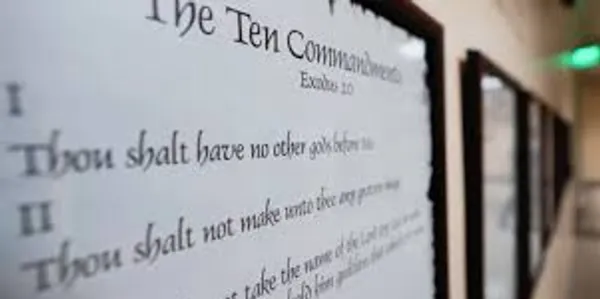New Texas law will require Ten Commandments to be posted in every public-school classroom
By: D. D. Reese
Texas has become the largest U.S. state to mandate the display of the Ten Commandments in public school classrooms, following Governor Greg Abbott's signing of the measure late Saturday. Under the new law, every classroom will be required to post a framed or poster version of the Ten Commandments (specific English translation), measuring at least 16 by 20 inches, a directive that extends to approximately 6 million students across 9,100 public schools.
The legislation passed swiftly in the Republican-led Legislature and was accompanied by a separate bill that allows school districts to offer students and staff a daily voluntary period of prayer or reflection. Supporters argue the commandments are deeply woven into the nation’s judicial and educational history, a sentiment echoed by state Representative Candy Noble, a co-sponsor of the bill.
Critics, however, have announced plans to challenge the law in court, citing concerns that it violates the constitutional principle of separating church and state. They highlight the diversity of Texas’ student body, spanning numerous faiths and secular backgrounds, and question the wisdom of promoting one religious’ text in government-run schools. Their challenge gains momentum from recent judicial actions: a nearly identical statute in Louisiana was struck down by the Fifth Circuit Court, and Arkansas is confronting its own legal fight over a similar requirement.
This move comes two decades after Abbott, then serving as Texas attorney general, successfully defended a Ten Commandments monument at the state Capitol in front of the U.S. Supreme Court in Van Orden v. Perry, where it was ruled constitutional based on its historical context. Supporters will likely cite that precedent, arguing that a public display reflects cultural heritage rather than religious imposition.
Opponents counter that classroom posters are far more personal and coercive than a monument on public grounds, and have warned that this law may catalyze renewed litigation that could again escalate to the Supreme Court.
As similar measures in other states have met legal defeat, the Texas law stands at the intersection of history, faith, and constitutional rights. With mounting court challenges ahead, Texas may soon become the center of a key national debate over the role of religion in education.
